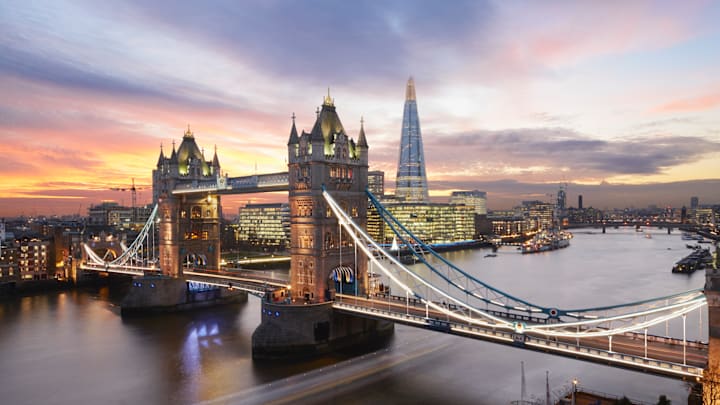As ubiquitous as they are now, smartphones were once considered revolutionary. Over the last few decades, smart technology has rapidly evolved to the point where whole metropolises are now thinking in terms of how to become “smart cities.” As more urban areas look to harness data and digital technology to make life better for residents, it begs the question: Which cities across the globe are doing it the best?
ProptechOS, a real estate technology company with a focus on “mak[ing] buildings good inhabitants of the smart city,” recently looked at 100 cities across Europe and the U.S. (including the most populous capital cities) to determine the answer.
To measure the “smartness” of each city, researchers honed in on 11 key metrics across a few parent categories, including tech infrastructure and connectivity, a tech-driven job market, and green infrastructure. They considered everything from broadband download speeds to access to electric vehicle (EV) charging points, and cities were then scored on a 100-point scale within each respective parent category.
“The cities that will thrive in the future are the ones best adapted to our new and greener ways of living,” Dr. Erik Wallin, founder and chief ecosystem officer at ProptechOS, said in a statement, which underscores the interconnected nature of tech and sustainability.
In Europe, London earned the highest overall ranking with a total score of 73.7 out of 100 points. The UK capital is home to nine 5G towers and boasts an average broadband speed of 82.7 Mbps (higher than 65 percent of the other cities ProptechOS analyzed), which helped it gain the advantage. Its sustainable infrastructure helped, too: Researchers found that The Big Smoke had the highest number of green-certified buildings and publicly accessible EV chargers of any other major European city.
London beat out several other capital cities, including second-place winner Amsterdam (which received 66.9 total points) and Paris, which came in fourth place but technically tied with Berlin, both of which scored 61.6 overall points. The City of Light, however, led every other European metropolis in terms of tech connectivity infrastructure with a score of 91 out of 100 points, edging out London (89.4 points), Amsterdam (86 points), and Berlin (82 points) within the same category.
See the full list below for more details on how each European city did:
City | Technology infrastructure | Green infrastructure | Tech jobs market | Total score (out of 100 points) |
|---|---|---|---|---|
1. London, UK | 89 | 95 | 36 | 73.7 |
2. Amsterdam, Netherlands | 86 | 88 | 27 | 66.9 |
3. Berlin, Germany | 82 | 77 | 26 | 61.6 |
4. Paris, France | 91 | 68 | 25 | 61.6 |
5. Lisbon, Portugal | 78 | 64 | 29 | 56.9 |
6. Oslo, Norway | 76 | 83 | 11 | 56.4 |
7. Budapest, Hungary | 80 | 74 | 15 | 56.3 |
8. Dublin, Ireland | 76 | 63 | 27 | 55.2 |
9. Madrid, Spain | 87 | 54 | 22 | 54.3 |
10. Helsinki, Finland | 77 | 62 | 19 | 52.4 |
